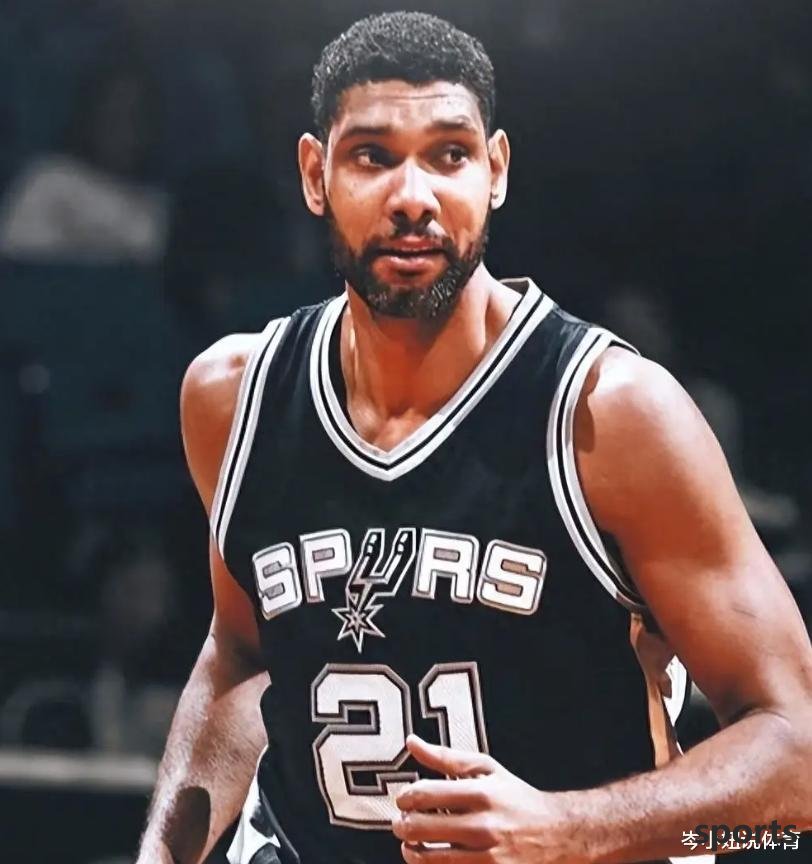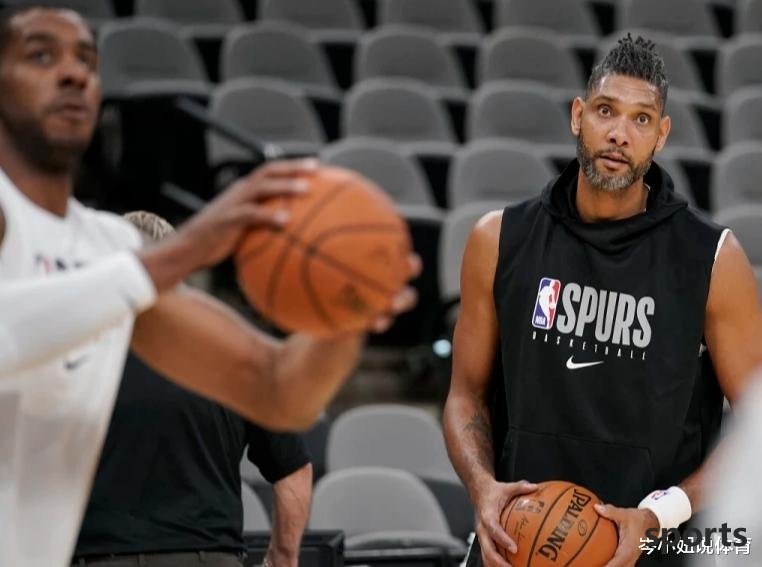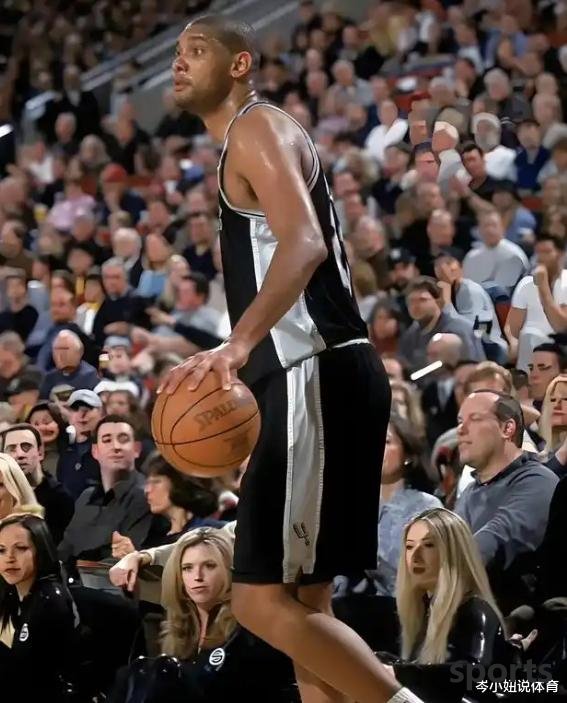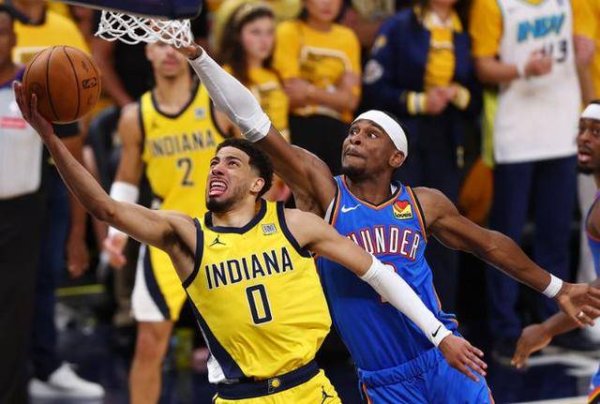HOME > Basketball
Duncan s unpopular record: The player with the most defensive teams, a total of 15 times
1:58pm, 28 July 2025【Basketball】
On July 28, in the history of the NBA, Tim Duncan's name is always associated with words such as "stability", "cornerstone" and "great". This big player from the Virgin Islands, with his low-key personality and excellent basketball skills, has become a legend for the San Antonio Spurs and the entire league. However, in Duncan's brilliant career, there is a record that is often overlooked - he is the most selected player in NBA history with a total of 15 times, including eight best defense first teams and seven best defense second teams. This achievement not only demonstrates Duncan's dominance on the defensive end, but also reflects his comprehensive and profound understanding of the game.
Duncan's defensive ability was already showing his strength as early as college. During his time at Wake Forest, he became one of the most feared inside defenders on the NCAA with his outstanding rebounding and blocking skills. In 1997, Duncan joined the Spurs as the No. 1 pick, and since then he started a legendary career. In his rookie season, Duncan showed a maturity that was inconsistent with his age, and averaged 21.1 points, 11.9 rebounds and 2.5 blocks per game, and was selected into the All-Defensive second team without any suspense. This honor is just the beginning of his defensive career.

Duncan's defensive style is not known for his gorgeous blocks or fierce steals, but is based on solid basic skills and excellent basketball IQ. His defensive coverage is very active. Whether it is low-level single defense, assisted defense fill-up, or pick-and-roll defense, Duncan can complete tasks with excellent prediction and movement ability. His hands are always raised high, interfering with the opponent's shooting sight; his footsteps are steady and rarely deceived by fake moves; his rebounding skills are textbook-level, and he can always win a second offensive opportunity for the team or end his opponent's offensive round at critical moments.
Duncan was selected for the Best Defensive Team for the first time in the 2000-2001 season, and since then he has started a long-term monopoly on this honor. Over the next seven seasons, he was selected for the All-Defensive Team and became the most stable inside defensive pillar in the league. During this period, the "two tower" combination formed by Duncan and David Robinson made the opponent frightened, and the Spurs also won the championship three times in 2003, 2005 and 2007 with their indestructible defensive system. Duncan's contribution on the defensive end is an important cornerstone for the establishment of the Spurs dynasty.

As he grows older, Duncan's athletic ability has declined, but his defensive influence has not diminished. He relies more on experience and awareness to make up for the decline in physical function by adjusting his defensive strategy. Since 2008, Duncan's first-team defensive honor has gradually been replaced by the best defensive second team, but this does not mean that his defensive level has declined, but that more young and promising inside defenders have emerged in the league. Even so, Duncan was selected as the best second team in 2013 and 2015 at the age of 40, demonstrating his ultimate pursuit of the art of defense.
Duncan's defensive achievements are not only reflected in personal honors, but also in the Spurs' overall defensive data. During his time at the Spurs, the Spurs have been one of the most defensive teams in the league many times. Duncan's existence has enabled the Spurs' defensive system to maintain extremely high stability. His leadership and defensive command ability allow outside players such as Tony Parker and Manu Ginobili to perform at a higher level on the defensive end. This invisible contribution cannot be fully reflected by the data.

Compared with other defensive players, Duncan's defensive style is more low-key. He doesn't have the explosive block stats like Ben Wallace, nor the passionate defensive performances like Kevin Garnett, but he protects the Spurs' penalty area year after year in the most unpretentious way. This stability is exactly what Duncan is most terrifying - no matter what kind of opponent he faces, he can always find a way to limit the opponent's score. As his nickname "Big Basics" suggests, Duncan has done this basics to the extreme.
In NBA history, it is rare for players to take into account both offense and defense, and Duncan is undoubtedly the best among them. His career average of 19.0 points, 10.8 rebounds and 2.2 blocks per game fully demonstrates his comprehensiveness on both offense and defense. But by contrast, his defensive achievements are often overshadowed by his offensive ability and championship honors. In fact, Duncan's record of 15 best defensive teams has been broken so far, and even Kevin Garnett (12 times) and Kobe Bryant (12 times) who are known for their defense are hard to reach.
Duncan's defensive philosophy has deeply influenced the Spurs' team culture. The defensive system created by Coach Popovich is largely designed around Duncan's ability characteristics. Even after Duncan retired, the Spurs still maintained a rigorous defensive tradition, which is a valuable legacy left by Duncan. It is rare in today's league that players like Duncan who can maintain such a high level on the defensive end for so long, and his record will likely remain for many years.
Looking back at Duncan's career, the record of being selected for the best defensive team in 15 times may not be as dazzling as the 5 championship trophys or 2 MVP trophys, but it most truly reflects the professional attitude and basketball wisdom of a great player. In an era of pursuing high scoring and gorgeous data, Duncan interprets the other side of basketball with his simple defense. This seemingly unpopular record is actually one of the best footnotes of Duncan's great career. It tells us: the real legend is not only about being able to score, but also about knowing how to prevent opponents from scoring.
Related Posts
- In the opening game of the new season, the Clippers fell behind by 24 points in the first quarter. The Jazz shot 16 of 20 in a single quarter. Harden and Paul were in a slump.
- Can Horford No. 42 jersey be retired from the Celtics? US media strongly support: His spirit and leadership are priceless
- Kumingga s farce is getting worse, and the boss Rakob angers Butler, Curry still keeps silent
- The Trail Blazers are 11th, the Spurs are 8th! US media predicts the Western Conference rankings in the new season: Clippers are 5th, Rockets are 3rd, and what are the Lakers?
- Porzingis: If the Celtics don t win the championship, we can exceed expectations in the Hawks
- Causing controversy! Yang Yi: If I were Guo Shiqiang, I would take Yang Hansen. If I don’t fight for the Asian Cup, something will happen.
- Durant Curryton was not Harden s opponent, both of them were almost defeated by the Rockets.
- The Lakers new player debuted: 3D champion + organizational brain, James Luca won the golden puzzle!
- After the Knicks were eliminated, four guesses, one person is the core, Thibodeau was dismissed, the guy touched the ceiling
- The league s first sword aims at the finals! Alexander is in a hot state, Edwards ushers in a life-and-death battle
Hot Posts
- In the opening game of the new season, the Clippers fell behind by 24 points in the first quarter. The Jazz shot 16 of 20 in a single quarter. Harden and Paul were in a slump.
- Can Horford No. 42 jersey be retired from the Celtics? US media strongly support: His spirit and leadership are priceless
- Kumingga s farce is getting worse, and the boss Rakob angers Butler, Curry still keeps silent
- The Trail Blazers are 11th, the Spurs are 8th! US media predicts the Western Conference rankings in the new season: Clippers are 5th, Rockets are 3rd, and what are the Lakers?
Recommend

The Bound Future: Bridges and New York!

James: There are a lot of babies being born not out of love, but out of sex and money.

ESPN well-known reporter: I think the Suns will send Durant away in the last few weeks!

The Rockets are doing something wrong with the Rockets? Maybe I regret not having to exchange for Durant in the future!

Take the initiative to reduce the number of shots! The former Mavericks first-round pick has a very obvious role in the Turkish team?

How do Pacers defeat the Thunder? Halliburton speaks his heart without hesitation, and speaks it very realistically

Is it popular? American fans bragging about Yang Hansen: Yao Ming 2.0+Hu Yong Shuha+Someone can guard against Jokic

Still regretting! Spike Li Tan Curry: The Warriors intercepted him before the Knicks!